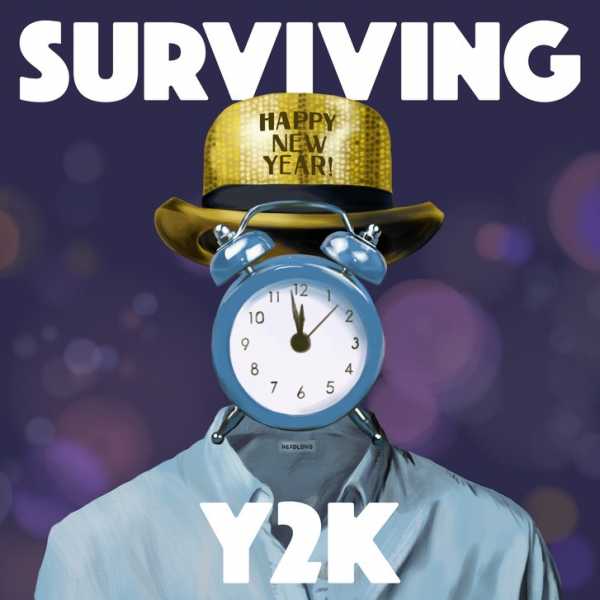
The delightfulness of New Year’s Eve comes from a global symbolic gesture—cheering on the turning of the clock, saying goodbye to the past and hello to the future. Dan Taberski’s podcast “Surviving Y2K” gives us stories from the most dramatic, and anticlimactic, New Year’s Eve of our era: that of 1999, when all four digits turned over, portending the unknown—and, we thought, the so-called Y2K bug. Many expected the bug to cause digital calamity; some expected a religious Second Coming or “Leftovers”-type situation; some felt their personal goings on—falling in and out of love, having a baby, coming out—become freighted with the drama of the moment. One was Taberski, a filmmaker and former “Daily Show” producer, best known as the creator and host of the “Missing Richard Simmons” podcast, from 2017. His own Y2K story provides the podcast’s chief narrative mystery.

In podcasting, Taberski is a notable, somewhat controversial figure. “Missing Richard Simmons”—a show that he has rebranded as the first season in a series called “Headlong,” of which “Surviving Y2K” is the second, both from Pineapple Street Media—did a beautiful job of explicating the exercise guru, humanizing a figure who had long seemed like a caricature. But in probing why Simmons had gone from extrovert to recluse, publicizing details from his personal life, and trying to “find” him—Simmons was in his house, wanting to be left alone—Taberski gave the show a stalkerish quality that combined journalism, entertainment, and exploitation. “Surviving Y2K” feels like a mea culpa for those mistakes, an effort to capitalize on the renown of his first podcast and redeem himself for it at the same time. In the new show, he presents accounts of the remarkable millennium experiences of various willing participants, from techies to End Timers, alongside his personal story, which is frank and full of intimate detail, as if he’s “Simmons”-ing himself. And, like “Simmons,” “Surviving Y2K” is both fascinating and discomfiting—smart, sweaty, and overeager, with moments of beauty and moments that make you cringe.
On the show, Taberski speaks in a friendly, pleasant way, but he also makes less pleasant use of a somewhat canned technique—a rising and falling tone, in which he sounds like he’s asking questions? And then answering them. Over and over again. (“That giant question mark? Waiting to be answered on January first? It energizes a whole community of people. Who don’t just expect the apocalypse? They want it to happen.”) Once you start to notice it, you can’t stop. It feels vaguely manipulative, which is a shame—he doesn’t need to trick us into paying attention.
Episode 1 begins with a typically Taberskian blend of creepy and fun: a story about a man named Otis, who in 1999 prepared a doomsday bunker for himself that featured a “self-sustaining, adorable food supply”: two hundred hamsters, male and female. Then we hear a string of alarmist clips from news programs, and a New Year’s countdown, and a fizzle: on Y2K, nothing calamitous happened. People shrugged and moved on. “But here’s the thing,” Taberski says. “Me? I think about that time, that day? Almost every day. I never dropped it. Because I busted through that third-millennium banner like a big dumb tiger mascot on fire.” His mascot-on-fire moment “nearly did me in,” he says. “And I almost ruined somebody else’s life in the process, egged on by the new millennium.” The millennium made me do it: you don’t hear that every day.
While deftly re-creating the Zeitgeist of 1999—scientists had cloned a sheep; the Spice Girls were upon us; “The Matrix” was blowing our minds—the series unspools its stories about other people, from Moscow, California, Israel, Saskatchewan, Britain, and beyond. We get the nice feeling of an eye looking down from above, observing our struggles and our fervent erroneous beliefs with affection and care. Some stories are about coders, like Dave Eddy, who warned people about the Y2K bug, and David (Bob) Loblaw, who warned that it was a hoax. (Taberski delights in the name “Bob Loblaw” so much that he says it in its entirety, with pleasure, seemingly dozens of times.) We hear about the Russian-American writer Masha Gessen falling in love—she had a plan to “kidnap” this “really cool” woman in Berlin and live happily ever after with her in Moscow—and the sudden dawn of the Putin era, on New Year’s Eve, which changed everything, including for Gessen.
Gessen, who now writes for this magazine, has a story that quietly astonishes with its blend of the personal and the world-historical; others’ stories are unforgettable because of the extreme behavior of the subjects. “Here’s the thing about the end of the world,” Taberski says. “It’s also? Going to be the beginning of another. And maybe that one? Maybe that one will be better.” He visits a pair of survivalists named Susan and Tom, whose wilderness school, in a geodesic dome in the hills outside San Diego, took off when Y2K panic set in, and talks to a woman named Adair, a former religious fundamentalist, who moved to Israel with her family to prepare for, and encourage, the End Times. They lived biblically—riding camels, wearing white robes, hanging out in caves, walking barefoot from Jericho to Jerusalem—and looked for the Ark of the Covenant. We also hear about regular people in extreme circumstances: parents and doctors in Utah competing to bring about the birth of millennium babies; a bank robbery in Kansas that turned into a hostage standoff. (The robbery piece replicates a bit too well the stress and tedium of the hostage situation, making copious use of theoretically valuable but extremely grating-to-listen-to phone calls of the negotiations.)
Many of the narratives parallel Taberski’s own, which he parcels out bit by bit. His story can feel more self-revealing than self-searching. At times you suspect that you’re meant to admire his frankness, his willingness to be honest and make himself look bad—but this, too, can feel like a manipulation. Peeping into Taberski’s windows doesn’t necessarily make us feel any better about having peeped into Richard Simmons’s. But Taberski’s story has a happy ending, as does that of the person whose life he says he almost ruined. Most of his other subjects’ stories result in happy—and sane—endings, too. What stays with us is a sense of the extremes we encounter—whether of hype, of circumstance, or of our own behavior—and the lovely details of life after we survive them: Adair walking away from fundamentalism and putting on her first pair of jeans; the survivalists mellowing out enough to enjoy Scrabble and origami. New Year’s Eve is a kind of mini-extreme, a fun fuss about nothing, a chance to reflect—and, in reflecting on a more acute version of it, when we all seem to have gone a little mad, Taberski gives us a chance to feel comparatively enlightened.
Sourse: newyorker.com






